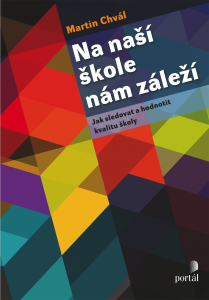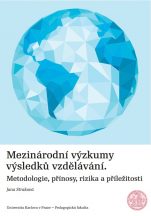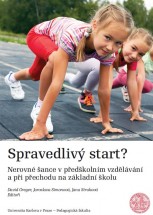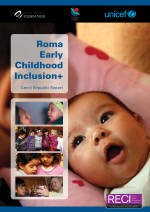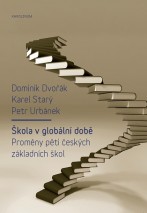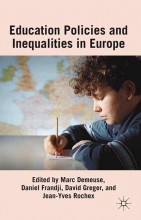Seminars
International project Preventing post-covid social exclusion together
- 8 November 2022
- photo gallery
- presentation
Czech Team successfully held the regional seminar of the the project Preventing Post-covid social exclusion together with the support of the Institute for Research and Development of Education, Faculty of Education, Charles University. The seminar presented the main findings of the questionnaire survey in the Czech Republic and Poland, and provided examples of inspirative practices. Last, but not least, it also offered suggestions and recommendations based on the findings from the project.
PhD journey and beyond: Strategies to write and publish academic papers
- 9 June 2022
- photo gallery
The workshop will introduce doctoral students to key strategies for publishing papers, with particular emphasis on criteria utilised in the evaluation of the quality of publications in the field of education. Participants will be invited to reflect on the following aspects of research publications: originality, authenticity and significance.
Revitising tiger parenting: From cultural essentialism to multiple frames of reference
- 8 June 2022
- photo gallery
- record
- presentation
Popularised by Amy Chua, the concept of tiger parenting is colloquially used to refer to intensive parenting, that is, when parents strictly plan and closely scrutinise nearly every aspect of their children’s lives. Such parenting styles are often stereotypically associated with Asian parenting, which has led to culturalist explanations. Contrary to this trend, the presentation provides a nuanced understanding of tiger parenting by analysing wider socio-economic, cultural, policy and educational conditions shaping parenting practices.
International Workshop on Psychometric Computing
- 21 and 22 February 2019
- registration
The aim of this workshop is to bring together researchers from statistics, psychology, and related disciplines working on modern techniques for the analysis of data from psychology and the social sciences. Following the fruitful previous workshops, it will provide a platform for discussions about implementation and application of software on the interface of statistical inference, computational methods, and applied psychometrics. A special emphasis is given to implementations in the Rsystem for statistical computing. To create a diverse and inspiring program, both authors and users of psychometric software packages are encouraged to present their recent and ongoing work.
Educational reforms in transition societies: Developing, implementing and evaluating educational reforms
- 8 and 9 November 2018
- invitation
Curriculum Reform in Lower Secondary Education in Ireland and the Literacies
- 26 October 2018
- invitation
- presentation
Dr. Majella Dempsey, Lecturer in education and course leader for the Bachelor of Science with Education and the Bachelor of Mathematics with Education programmes in Maynooth University. Lectures on Curriculum development, Research methods, Teaching, Learning and Assessment. At the heart of all research interests is the role of pedagogy in teaching, learning, assessment and curriculum.
Ireland embarked on an ambitious reform of lower secondary education in 2010 that places emphasis on the literacy and numeracy and other key skills. The push for reform in Ireland can be traced back to Lisbon in 2000. Lisbon is significant in education for a number of reasons—not least that it! linked education with social policy, labour market and overall economic policy. It also saw the introduction of Open Method Coordination, which has led to policy borrowing and peer learning, but also to ideation convergence! and! an! obsession,! some! would! say,! with! global! data! such! as! that! from! PISA! and! TALIS. Curriculum discussions tend to be about how change is managed, rather than its meaning about who controls and decides, rather than what is decided and about the relationship between curriculum and economic success, rather than the common good. The domination of the rational technical paradigm has supported the climate of fragmentation resulting in the neglect of macroacurriculum issues. Curriculum reform in Ireland is at present in a liminal state. In this lecture the lower secondary system of education in Ireland is viewed as an assemblage –as an open, adaptive system and the sum of the whole is greater than the number of its parts. The study builds on interviews with teachers and focus groups of their students. The interviews are analysed in relation to teachers’ role in a process of arranging, organising and fitting together, a process of knowledge making as part of a bigger whole. It shows how this knowledge making in a changea-oriented environment can promote or inhibit curriculum making.
The Curriculum Development Process in Ireland and Focus on Literacy and Numeracy
- 24 October 2018
- invitation
- presentation
Dr. Majella Dempsey, Lecturer in education and course leader for the Bachelor of Science with Education and the Bachelor of Mathematics with Education programmes in Maynooth University. Lectures on Curriculum development, Research methods, Teaching, Learning and Assessment. At the heart of all research interests is the role of pedagogy in teaching, learning, assessment and curriculum.
In this presentation I will give a concise overview of how curriculum development is carried out in Ireland and explain how the new curriculum features a focus on literacy, numeracy and key skills. I will give an overview of the work of the National Council for Curriculum and Assessment (NCCA) and how this links with the Department of Education (DES) and the State Examinations Commission (SEC). Curriculum development in Ireland is a highly consultative and collaborative process. Curriculum implementation is not a smooth process with many issues and obstacles holding back real change.
To explore and unpack these challenges and to share the supports needed for curriculum change I will use the Junior Cycle Reform as a case to share with you. We will discuss together frameworks for curriculum development and assessment. I will explicate the supports provided by the government for curriculum implementation and teacher professional development. Together we will explore similarities and differences between Ireland and the Czech Republic and seek to share experiences.
The Challenge of Making Schools Inclusive
- 16 May 2016
- invitation
- presentation
- photogallery
Gordon L. Porter, C.M., O.N.B., Director Inclusive Education Canada Making schools inclusive is a complex and multi-layered challenge. It involves several aspects that make it difficult. For many educational leaders and policy makers it is apparently too difficult. Thus, the need for action to address the key challenges:
1. Human Rights and Equity issues;
2. Political and policy matters, including funding mechanisms;
3. School organization and structures of support for students and teachers;
4. Pedagogical & Instructional practices, including improving teacher training and professional learning;
5. Managing complex change in a coherent way (and making schools inclusive is a complex change).
Gordon L. Porter is the educator with experience in senior positions; skilled in leadership and organizational matters; high level of skill in training, consultation, planning, evaluation and facilitation; more than 30 year commitment to achieving equality and equal rights for persons with disabilities; extensive experience in developing workable linkages between individuals, communities and government; researcher, writer and trainer in education, with emphasis on policy and practices to support inclusive schooling; extensive experience in international work promoting human rights and social/school inclusion; traveled and worked in more than 40 countries during the last 15 years. He serves as Senior Advisor at Ministry of Education, Culture and Employment, Government of the Northwest Territories, Canada, providing direction and specialist consultation on policy and program enhancement for the “Inclusive Schooling Directive” of the Ministry. He has been working with the Deputy Minister, Assistant Deputy Minister and other senior officials as well as School Superintendents on program review and enhancement including action plan for change.
The Challenge of Making Schools Inclusive
- 16 May 2016
- invitation
- presentation
- photogallery
Gordon L. Porter, C.M., O.N.B., Director Inclusive Education Canada Making schools inclusive is a complex and multi-layered challenge. It involves several aspects that make it difficult. For many educational leaders and policy makers it is apparently too difficult. Thus, the need for action to address the key challenges:
1. Human Rights and Equity issues;
2. Political and policy matters, including funding mechanisms;
3. School organization and structures of support for students and teachers;
4. Pedagogical & Instructional practices, including improving teacher training and professional learning;
5. Managing complex change in a coherent way (and making schools inclusive is a complex change).
Gordon L. Porter is the educator with experience in senior positions; skilled in leadership and organizational matters; high level of skill in training, consultation, planning, evaluation and facilitation; more than 30 year commitment to achieving equality and equal rights for persons with disabilities; extensive experience in developing workable linkages between individuals, communities and government; researcher, writer and trainer in education, with emphasis on policy and practices to support inclusive schooling; extensive experience in international work promoting human rights and social/school inclusion; traveled and worked in more than 40 countries during the last 15 years. He serves as Senior Advisor at Ministry of Education, Culture and Employment, Government of the Northwest Territories, Canada, providing direction and specialist consultation on policy and program enhancement for the “Inclusive Schooling Directive” of the Ministry. He has been working with the Deputy Minister, Assistant Deputy Minister and other senior officials as well as School Superintendents on program review and enhancement including action plan for change.


